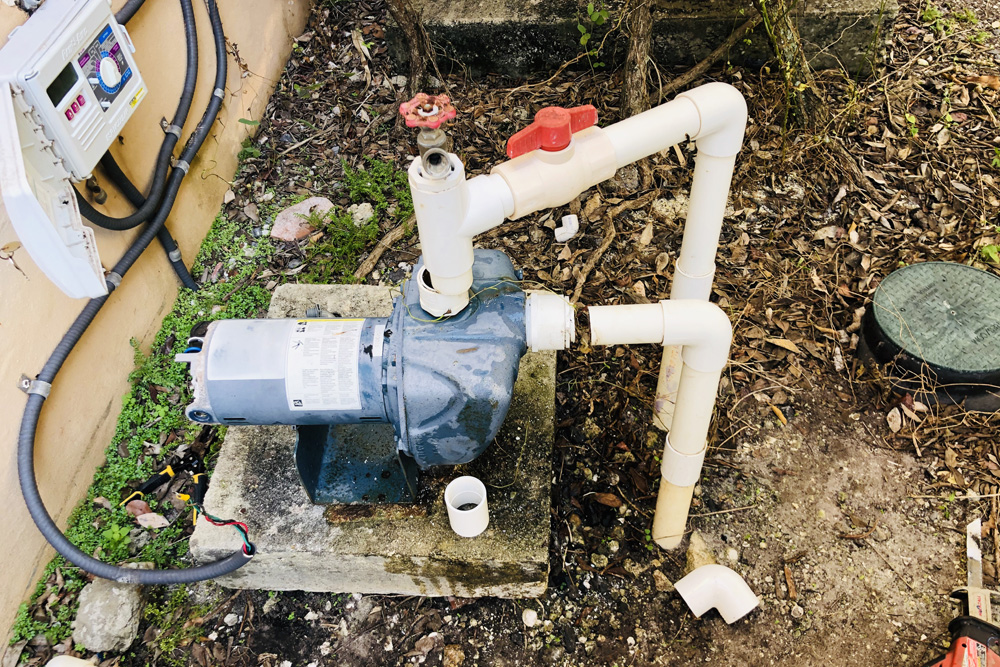Costs Water Softeners: Transforming Hard Water right into Soft, Extravagant Comfort
Costs Water Softeners: Transforming Hard Water right into Soft, Extravagant Comfort
Blog Article
Comprehending the Secret Parts of Effective Water Filtration Systems

Relevance of Water Filtration Equipment
Water purification systems play an essential role in guaranteeing access to safe and clean drinking water by successfully eliminating contaminations and impurities. These systems are important in attending to the growing worries over water quality and the prospective health and wellness risks related to taking in infected water. By making use of numerous filtering devices such as reverse osmosis, activated carbon, and UV sterilization, water purification systems can effectively remove unsafe substances like bacteria, viruses, heavy metals, and chemicals from the water.
In addition, water purification systems help to enhance the taste and odor of water by removing chlorine, sediments, and various other pollutants that can influence its quality. Water Filtration Systems. This enhancement in water quality not just makes it more palatable but likewise urges people to consume alcohol an ample amount of water daily, advertising better hydration and overall health
Kinds Of Purification Parts

Physical filters are created to physically stress out contaminations from the water. These filters can be constructed from products like ceramic, carbon, or even sand, and they function by trapping fragments larger than the filter's pores as water goes through.
Chemical filters use numerous chemical procedures to get rid of impurities from the water. Instances include turned on carbon filters, which adsorb contaminations, and turn around osmosis membrane layers, which use stress to separate pollutants from the water.
Organic filters use living microorganisms like germs or algae to damage down natural issue and contaminants in the water. These filters are usually used in wastewater therapy plants or all-natural water purification systems.
Comprehending the various sorts of filtering elements is crucial for selecting one of the most ideal water purification system for particular filtration needs.
Function of Sediment Filters
Debris filters play a critical duty in water filtering systems by properly capturing solid fragments put on hold in the water. These filters are generally the initial line of protection in a purification system, removing larger particles such as sand, silt, dust, and corrosion prior to the water relocates through finer purification stages. By trapping these debris, the filters avoid them from getting to downstream components, therefore prolonging the life expectancy and efficiency of the whole system.
The function of sediment filters is essential in maintaining water top quality and safeguarding delicate tools from damages brought on by particles. In addition, by getting rid of noticeable bits, debris filters improve the clearness and preference of the water. Regularly cleaning or changing debris filters is necessary to ensure optimal efficiency. Ignoring this maintenance can result in obstructing, minimized water flow, and jeopardized filtering effectiveness. In general, debris filters are crucial elements that contribute significantly to the effectiveness of water filtering systems.
Function of Triggered Carbon Filters
Playing a crucial role in water filtering systems, triggered carbon filters are instrumental in removing impurities and impurities from the water. These filters are designed to adsorb and trap a vast array of contaminants, including chlorine, volatile natural substances (VOCs), pesticides, and herbicides. The turned on carbon product has a big area, blog enabling the efficient capturing of impurities with a process called adsorption. As water passes with the filter, the triggered carbon holds and attracts onto the impurities, making sure that the water that appears beyond is cleaner and safer for consumption.
Triggered carbon filters are highly effective at improving the preference and smell of water by minimizing chemicals that can influence its quality. They are likewise efficient in getting rid of specific hefty metals like lead and mercury. Furthermore, these filters can help prevent the buildup of microorganisms and algae in water, more improving its overall quality. Due to their flexibility and dependability, triggered carbon filters are a vital element in ensuring that water is purified to the greatest standards prior to getting to consumers.
Recognizing Reverse Osmosis Equipments
Reverse osmosis systems are innovative water filtering systems that employ a sophisticated procedure to get rid of contaminants and contaminations from drinking water. These systems function by using stress to the water, requiring it through a semi-permeable membrane. This membrane functions as an obstacle, permitting only pure water particles to go through, while obstructing larger particles such as minerals, chemicals, and other pollutants. Because of this, the water that comes out beyond is significantly cleaner and safer for usage.
In addition, reverse osmosis systems are reasonably low-maintenance and can be installed under the sink or in a main filtering system, providing practical accessibility to tidy water throughout the house. Overall, understanding just how reverse osmosis systems work can help people make informed choices concerning their water filtering needs.
Final Thought
In conclusion, reliable water filtration systems are vital for guaranteeing secure and tidy alcohol consumption water. By comprehending the function and function of each element, people can make enlightened decisions when picking a water purification system.
Water filtering systems play a crucial role in making sure accessibility to tidy and Web Site safe alcohol consumption water by efficiently getting rid of contaminations and pollutants. By utilizing different purification systems such as reverse osmosis, turned on carbon, and UV sterilization, water purification systems can effectively remove dangerous materials like bacteria, infections, hefty steels, and chemicals from the water supply.
Debris filters play an important role in water filtering systems by properly capturing strong fragments suspended in the water (Water Softeners).Playing a critical function in water purification systems, triggered carbon filters are important in removing pollutants and pollutants from the water supply.Reverse osmosis systems are innovative water purification systems that utilize an innovative procedure to get rid of pollutants and impurities from Water Filtration Systems alcohol consumption water
Report this page